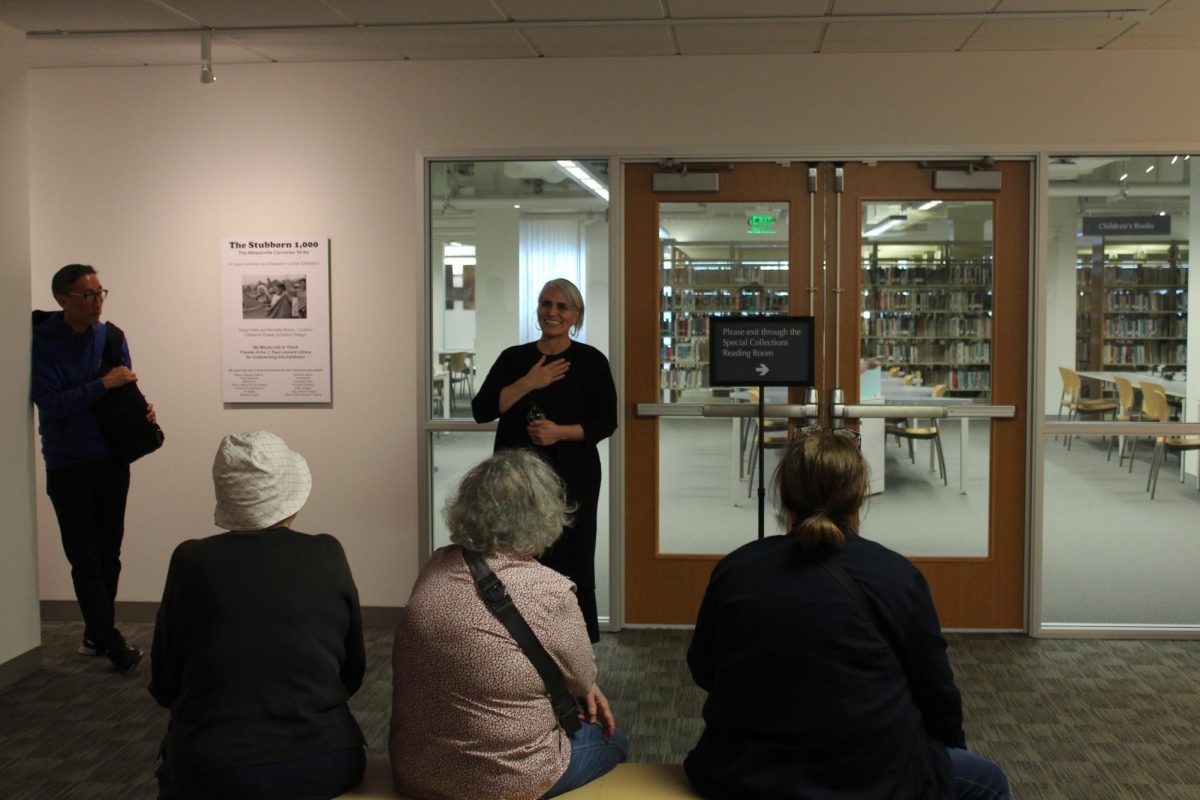Fifty years after the student strikes, the push for ethnic studies traveled from SF State’s campus to the steps of California’s legislative capitol.
A bill proposing a three-unit ethnic studies requirement at all California State University (CSU) campuses is the latest of the statewide movement to include ethnic studies at all levels of education. Assembly Bill 1460 will be up for reconsideration after failing to pass in the state senate this summer, due to concerns with the current version.
The CSU is opposing the bill on the principle that it imposes upon CSU faculty’s freedom to design curriculum and graduation requirements, said Mike Uhlenkamp, Senior Director of Public Affairs for CSU.
“We absolutely embrace diversity and we absolutely embrace ethnic studies … but I think a piece of legislation that mandates curriculum is predominantly our issue,” Uhlenkamp said.
After opposing AB 1460 for its legal nature, the Academic Senate of the California State University (ASCSU), a group of faculty representatives from each campus, passed a resolution to come up with their own ethnic studies requirement.
“If the faculty senate are in favor of having an ethic studies requirement then we should listen to faculty, who are usually very much connected with students to roll out a requirement,” Amy Sueyoshi, Dean of the College of Ethnic Studies at SF State said. “We’re happy to support that in any way we can.”
Legislation like AB 1460 may be a short term response to the university system’s lack of curriculum and pedagogy that include “multiracial and multicultural and multiethnic experiences and approaches to all the disciplines,” Jeff Duncan-Andrade, professor of Raza Studies and Educational Leadership, said.
Studying all majors through an ethnic studies lens, as opposed to requiring only one class taught in this way, is crucial to the success of graduates, Andrade said. However, the approach to teaching most subjects is through a Eurocentric, male-centric, English-speaking, middle-class framework.
“The job of the CSU is to prepare students to engage in a society that is multiracial, [multiethnic], [multicultural] and that has a varied and complex history,” Andrade said. “Because that is not the explicit commitment of every discipline in the CSU, the students are ill-prepared.”
Studies have shown that ethnic studies increases academic engagement and facilitates graduation for both students of color and white students, both Sueyoshi and Andrade said.
Existing Diversity Requirement
The CSU has a broader diversity requirement in place, which each campus chooses how to implement, Uhlenkamp said.
“The diversity requirement already exists,” Uhlenkamp said. “We’re happy with the requirement as it is, and that it allows students to make that choice for themselves.”
This requirement, however, does not require classes that are centered around the experiences of people of color the way ethnic studies does. A variety of traditional history and social science classes can also fulfill the existing diversity requirement.
“The minute you start trying to center those who have been de-centered, those who are closer to the center begin to resist … the very idea of being decentered is somehow disempowering,” Andrade said. “Instead of being able to say ‘Wow, having a black narrative at the center of my educational discourse might actually help me understand myself better.’”
The ASCSU resolution, passed without dissent Sept. 19-20, said the senate would take feedback from the CSU Council on Ethnic Studies and the 23 CSU campus senates by Nov. 1 to determine how best to implement a CSU-mandated ethnic studies requirement.
Graduation Units
Uhlenkamp also said that this new requirement would interfere with an existing law (SB 1440) that guarantees transfer students the opportunity to earn a bachelor’s degree within 120 units if 60 units are completed at a community college.
“We have worked for a better part of a decade to streamline the transfer process,” Uhlenkamp said. “So since basically 2010 we have tried to get college degrees, the unit requirement, to 120 units. So a student could take 15 units every semester and graduate in four years … The bill would then force us to add units to each degree.”
The bill, however, states that it will not add units to graduation, and the ethnic studies course may be taken as an elective. The ASCSU has not said if a future ethnic studies requirement would be a stand alone requirement or be worked into each major or minor program.
Making Ethnic Studies Real
If a requirement does pass on a state level or CSU-level, Andrade said he thinks there will be both positive outcomes and new concerns.
“It’s gonna pull ethnic studies out of the margins, and more into the central mission of the CSU system,” Andrade said. “And I think that’s a really good thing … it’s a course correction for an institution that has claimed for a long time to be committed to all of the citizens of California.”
The worry with adding the requirement, Andrade said, is that schools may not be equipped with the curriculum and teaching methods to effectively teach ethnic studies.
“If you’ve got people teaching ethnic studies that aren’t prepared to teach ethnic studies, then the student experience tends to be negative,” Andrade said. “Then that’s used as a rationale for why we shouldn’t do ethnic studies institution-wide, because it’s not a high quality program.”
The California State Senate will vote on a revised version of AB 1460 in January 2020, by which time the ASCSU hopes to start developing an ethnic studies requirement of its own. The College of Ethnic Studies is hosting a panel about integrating ethnic studies into K-12 and higher education this Thursday at 2 p.m. as part of its 50th anniversary commemoration.












